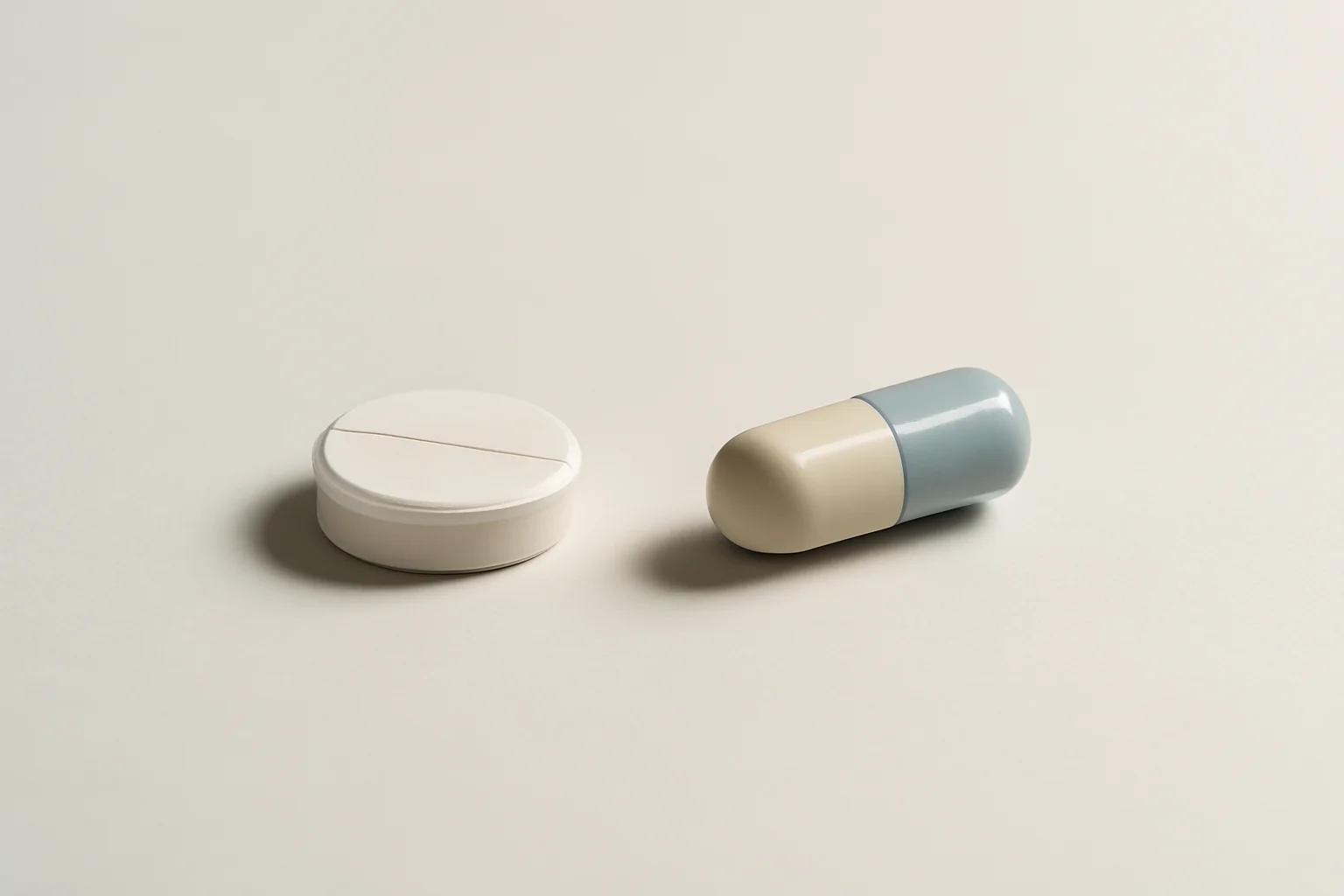
Tablet or capsule: Which is the more effective choice?
The forms of dietary supplements and medications today offer a wide range of options for users. Two popular forms are tablets and capsules, which are often chosen by people for the treatment or prevention of various health issues. The choice between the two forms not only affects effectiveness but also convenience, digestion, and absorption. Tablets are typically made in a hard, compact form, while capsules have a softer, gel-like outer layer, which in many cases aids in faster absorption.
These forms offer different advantages and disadvantages, which are important considerations for users. Those seeking the best solution for selecting the right dietary supplement or medication should take into account their own needs and preferences. The aim of this article is to highlight the main differences between the two forms, as well as the considerations for choice that can assist in decision-making.
Tablets: Advantages and Disadvantages
Tablets are one of the most common forms of medication and dietary supplements used in many parts of the world. Their advantages include easy storage, long shelf life, and generally being cheaper than capsules. Due to their compact form, tablets often contain additives that help with manufacturing and stability.
The effectiveness of tablets largely depends on the type of active ingredient and the dosage. Tablets dissolve slowly in the digestive system, which means that the active ingredient is released gradually. This can be advantageous in certain cases, such as when continuous intake of the active ingredient is desired.
However, there are also disadvantages to tablets. Some people find them difficult to swallow, especially if they are larger in size. Those who struggle with swallowing often seek alternative solutions, such as capsules or liquid forms.
Additionally, interactions between the ingredients in tablets must also be considered, as some additives can reduce the absorption of the active ingredients. It is important for users to be informed about what ingredients are contained in the chosen tablet and how these may affect their body.
Capsules: Convenience and Effectiveness
Capsules, which are typically made from gelatin or plant materials, have numerous advantages that lead many to prefer them over tablets. One of their biggest advantages is that capsules dissolve more quickly in the stomach, meaning that the active ingredients are absorbed into the bloodstream faster.
Capsules can also be more palatable, as the active ingredients are encased in a gelatin coating that can help mask unpleasant tastes. Furthermore, capsules are generally easier to swallow, making them an ideal choice for those who have difficulty taking tablets.
The disadvantages of capsules include that they are more prone to spoilage due to moisture, requiring proper storage. Additionally, they can also be more expensive than tablets, which can influence the choice.
When it comes to capsules, it is important to consider that not all active ingredients are suitable for encapsulation. Some substances may not dissolve properly, potentially reducing effectiveness. Therefore, it is crucial for users to be informed about the contents of capsules and their absorption characteristics.
Tablet or Capsule: Which to Choose?
The choice between a tablet and a capsule depends not only on effectiveness but also on the individual preferences and needs of the user. Factors to consider include the type of active ingredient, the dosage, personal comfort, and the price range.
If someone has difficulty swallowing, opting for capsules may be advisable, as they are generally easier to take. Those seeking long-term active ingredient intake may prefer tablets due to their slower mechanism of action.
Budget also plays an important role in the choice. Tablets are generally cheaper, so if someone regularly takes a dietary supplement, it is worth considering this aspect as well.
Ultimately, the most important thing is to always be informed about the ingredients and effects of the chosen product. Before starting any dietary supplement or medication, it is advisable to consult with a doctor to ensure that it is suitable for you.
**Warning:** This article does not constitute medical advice. In case of health problems, always consult your physician and follow their recommendations.

